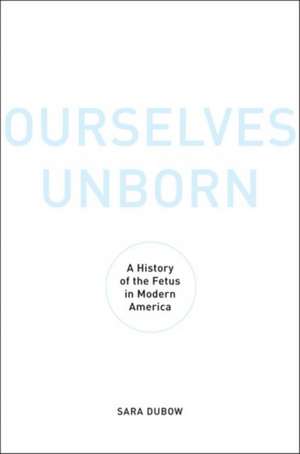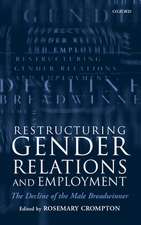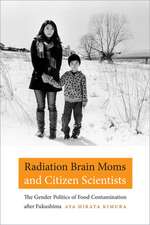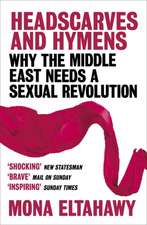Ourselves Unborn: A History of the Fetus in Modern America
Autor Sara Dubowen Limba Engleză Paperback – 13 apr 2017
| Toate formatele și edițiile | Preț | Express |
|---|---|---|
| Paperback (1) | 226.93 lei 31-37 zile | |
| Oxford University Press – 13 apr 2017 | 226.93 lei 31-37 zile | |
| Hardback (1) | 319.33 lei 31-37 zile | |
| Oxford University Press – 20 ian 2011 | 319.33 lei 31-37 zile |
Preț: 226.93 lei
Preț vechi: 254.80 lei
-11% Nou
Puncte Express: 340
Preț estimativ în valută:
43.43€ • 44.86$ • 36.14£
43.43€ • 44.86$ • 36.14£
Carte tipărită la comandă
Livrare economică 14-20 martie
Preluare comenzi: 021 569.72.76
Specificații
ISBN-13: 9780190610715
ISBN-10: 0190610719
Pagini: 320
Ilustrații: 15 illus.
Dimensiuni: 155 x 231 x 25 mm
Greutate: 0.45 kg
Editura: Oxford University Press
Colecția OUP USA
Locul publicării:New York, United States
ISBN-10: 0190610719
Pagini: 320
Ilustrații: 15 illus.
Dimensiuni: 155 x 231 x 25 mm
Greutate: 0.45 kg
Editura: Oxford University Press
Colecția OUP USA
Locul publicării:New York, United States
Recenzii
Dubow offers up an important contribution to the field, forcing the reader to contend both with why the fetus is such a fascinating topic for investigation and the deeper social tensions expressed in each conversation about the objects.
The great strength of this book is the author's wide-angle lens on the human fetus across more than a century of American culture and politics. Sara Dubow offers a thoroughly researched, elegantly written, and comprehensive biography of the unborn. Readers interested in the history of medicine, science, and technology, as well as the history of women's health and reproduction, will find much to savor here.
Dubow's history of the fetus as symbol is a major addition to our history of politics, gender, the body, and reproduction in America. To understand American politics and culture since the nineteenth century requires grasping American's long standing interest in the unborn and the many uses of the concept of fetus. Dubow gives the unknowable "unborn" a history, thus revealing that today's fetus is a construction that grew out of specific political circumstances.
[I]lluminating, even gripping...Dubow has provided an indispensable contribution to US political thought.
A nuanced analysis...Dubow's work makes a significant contribution to our understanding of fetal history...This work will quickly become a standard in the field. Dubow places fetal history within a broad historical context that makes the book valuable to scholars interested in twentieth-century gender, race, politics, and medicine.
Dubow's book is a reminder of the moral dilemmas, the politicisation and the sometimes shameful decisions that have been taken over the years.This careful book allows the reader to navigate a course through highly-politicised waters.
Provocative
Splendidly informative.
The great strength of this book is the author's wide-angle lens on the human fetus across more than a century of American culture and politics. Sara Dubow offers a thoroughly researched, elegantly written, and comprehensive biography of the unborn. Readers interested in the history of medicine, science, and technology, as well as the history of women's health and reproduction, will find much to savor here.
Dubow's history of the fetus as symbol is a major addition to our history of politics, gender, the body, and reproduction in America. To understand American politics and culture since the nineteenth century requires grasping American's long standing interest in the unborn and the many uses of the concept of fetus. Dubow gives the unknowable "unborn" a history, thus revealing that today's fetus is a construction that grew out of specific political circumstances.
[I]lluminating, even gripping...Dubow has provided an indispensable contribution to US political thought.
A nuanced analysis...Dubow's work makes a significant contribution to our understanding of fetal history...This work will quickly become a standard in the field. Dubow places fetal history within a broad historical context that makes the book valuable to scholars interested in twentieth-century gender, race, politics, and medicine.
Dubow's book is a reminder of the moral dilemmas, the politicisation and the sometimes shameful decisions that have been taken over the years.This careful book allows the reader to navigate a course through highly-politicised waters.
Provocative
Splendidly informative.
Notă biografică
Sara Dubow is Assistant Professor of History at Williams College.













